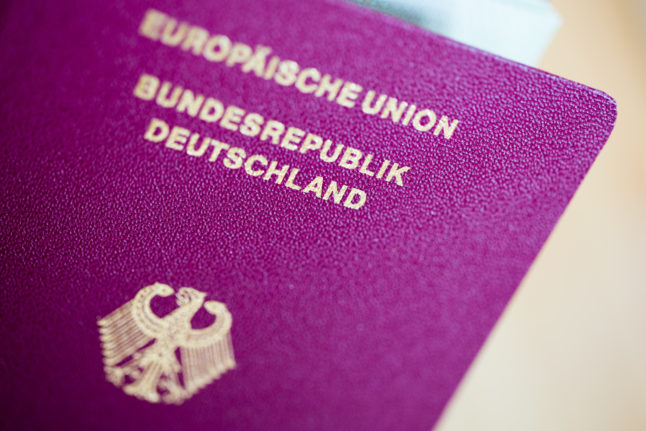According to information on the Bundestag website, the urgent discussion was scheduled on the request of the opposition CDU party, who have been fiercely critical of the planned reforms in recent days.
The debate, which is scheduled to start at 2:50pm and last an hour, will see MPs air their views on the government’s planned changes to citizenship law.
Interior Minister Nancy Faeser (SPD) is currently in the process of drafting a bill that will simplify and speed up the naturalisation process in Germany, which she said this week is “as good as done”.
The law will end a ban on dual nationality for non-EU citizens, meaning people from places like India, the USA and the UK can naturalise as Germans without losing their current citizenship – or citizenships.
It also foresees a dramatic reduction in the amount of time it takes to become eligible for German citizenship.
In future, people would be able to naturalise after five years of residence in the country rather than the current eight, while people who speak good German or fulfil other integration criteria could naturalise after three years rather than six.
Additionally, the Interior Ministry wants to grant automatic German citizenship to the children of foreign parents – provided their parents have been in the country at least five years – and remove language requirements for members of the guest-worker generation who want to become German.
READ ALSO:
- Germany to ease citizenship rules for children foreign parents
- EXCLUSIVE: German Bundestag to debate law allowing dual citizenship in December
‘We don’t need reform’
High-profile politicians from the CDU have slammed the government’s plans to ease citizenship rules, with parliamentary leader Thorsten Frei describing the move as an attempt to “sell-off” German passports as a “junk commodity”.
“We don’t need reform,” Frei told public broadcaster ZDF. “There would no majority whatsoever in any party’s supporters for this change.”
Earlier this week, CDU leader Friedrich Merz had argued that expediting the naturalisation process would damage integration and allow people to immigrate into the benefits system more easily.
“The CDU will not close its mind to a further modernisation of immigration law and the citizenship law of the Federal Republic of Germany,” Merz told a meeting of CDU and CSU MPs in Berlin on Tuesday.
“However, we also attach importance to the fact that the granting of citizenship takes place at the end of an integration process and not at the beginning of it.”
The CDU and CSU have previously been vocal opponents of permitting dual nationality, arguing that holding more than one citizenship would prevent people from fully integrating into German life.
Nevertheless, it remains unclear if the opposition will be able to block the legislation in any meaningful way.
If there aren’t any substantial changes to the core of the citizenship bill when the amendments are made, the Interior Ministry believes it won’t need to be put to a vote in the Bundesrat – the upper house where the CDU and CSU hold a majority.
Instead, the parties of the traffic-light coalition – the Social Democrats (SPD), Greens and Free Democrats (FDP) – would simply be able to vote it through in the Bundestag.
READ ALSO: EXPLAINED: Could Germany’s conservatives block dual citizenship?



 Please whitelist us to continue reading.
Please whitelist us to continue reading.
Member comments